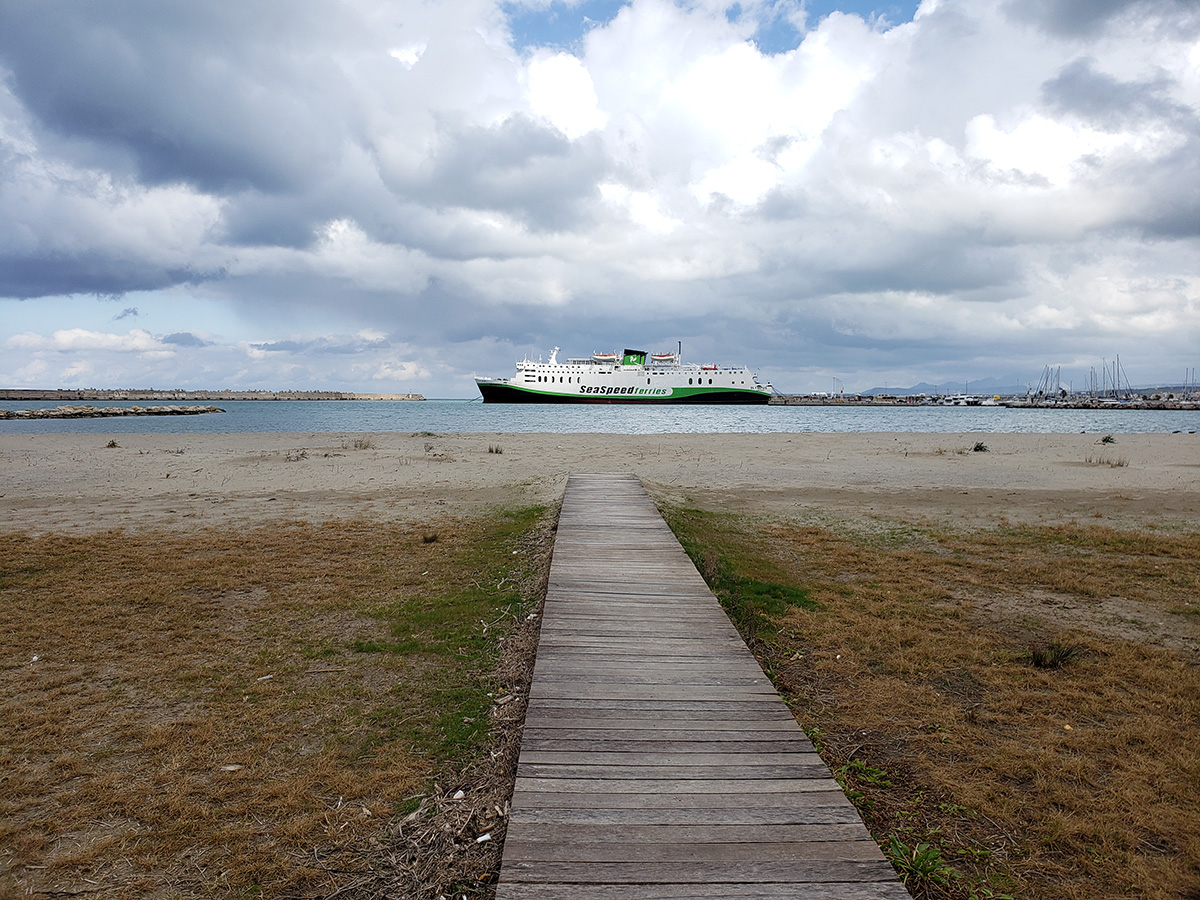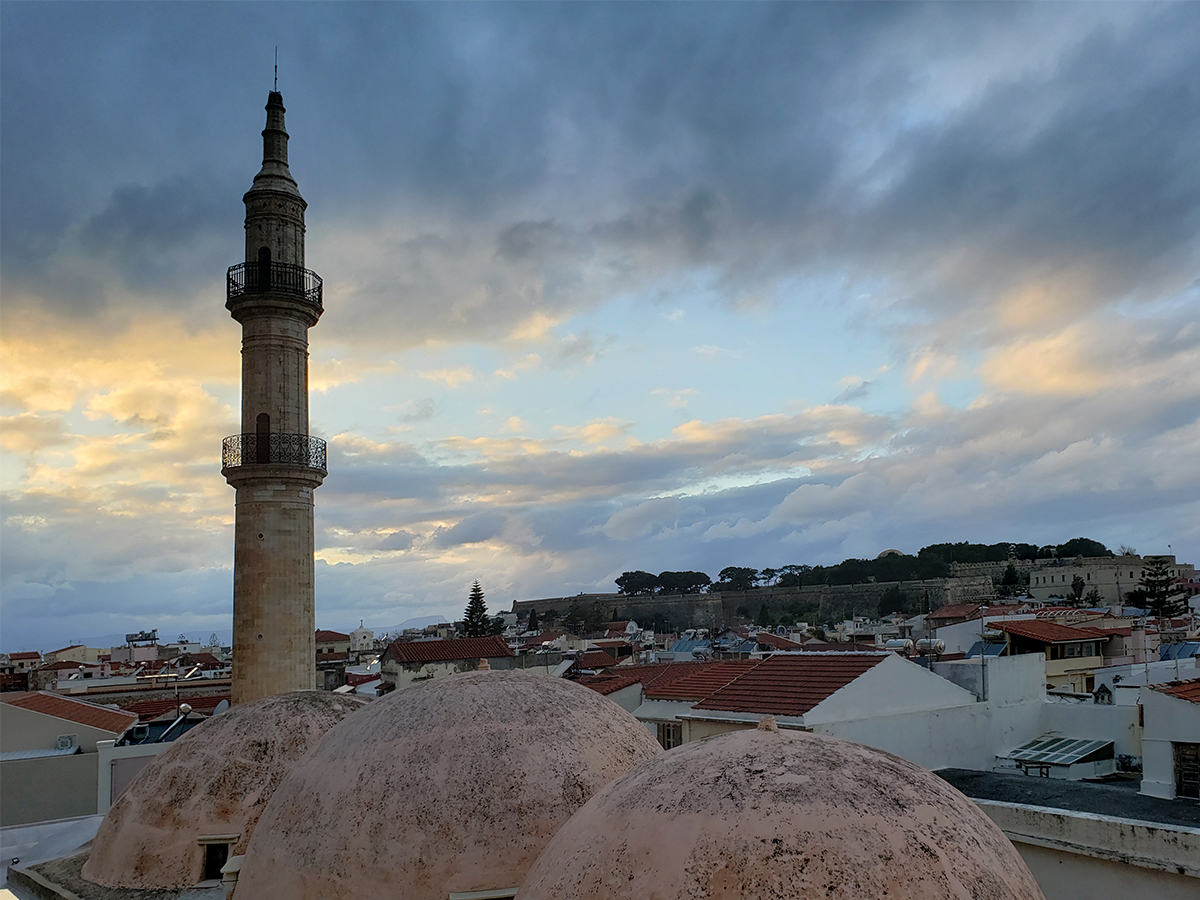
The town of Rethymno (also spelled Rethimno and Rethymnon) is a town on the northern coast of Crete, roughly halfway between Chania and the capital city of Heraklion. We took a public KTEL bus there from Chania, a journey of just over an hour.
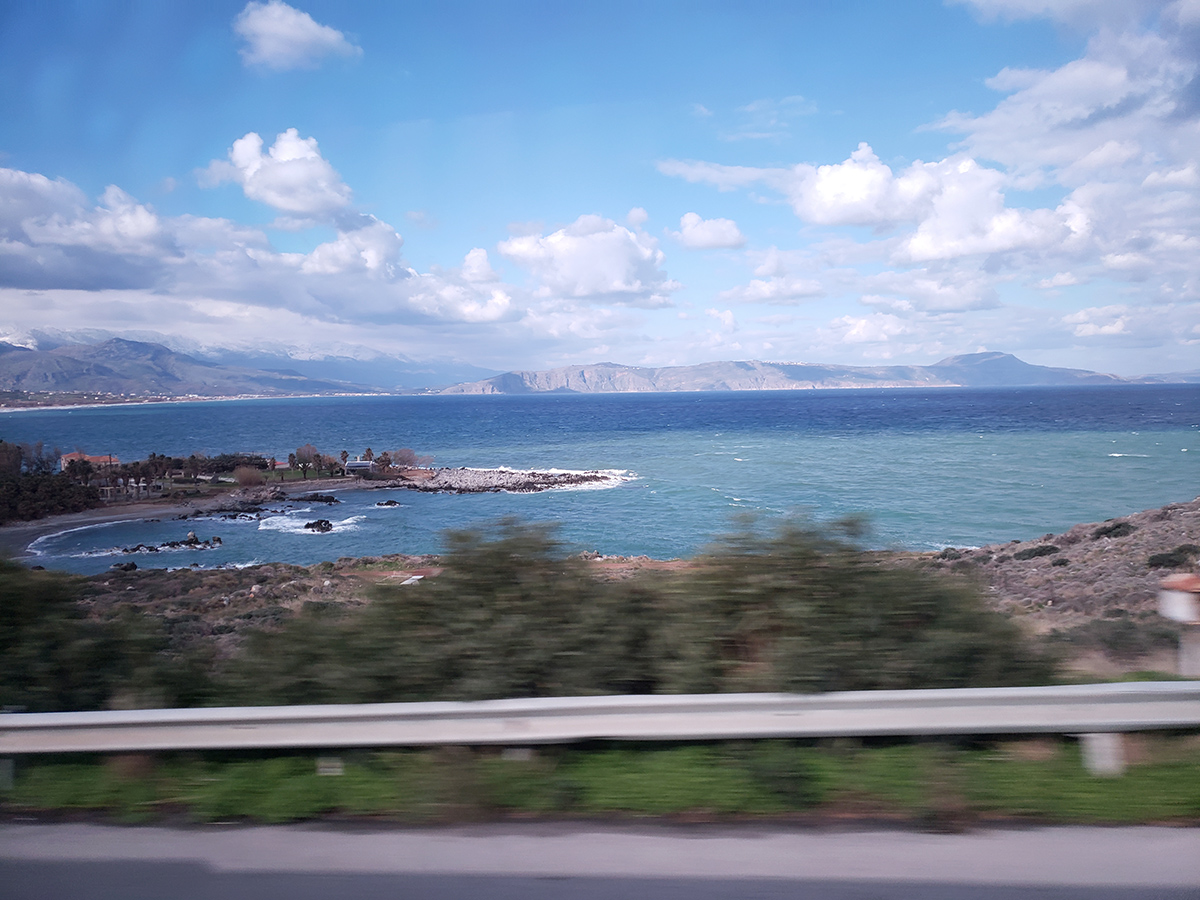
The views from the bus were alone worth the price of the ticket. The road twisted along the northern coast and there were usually beautiful ocean views on the left, and stunning mountain views on the right.
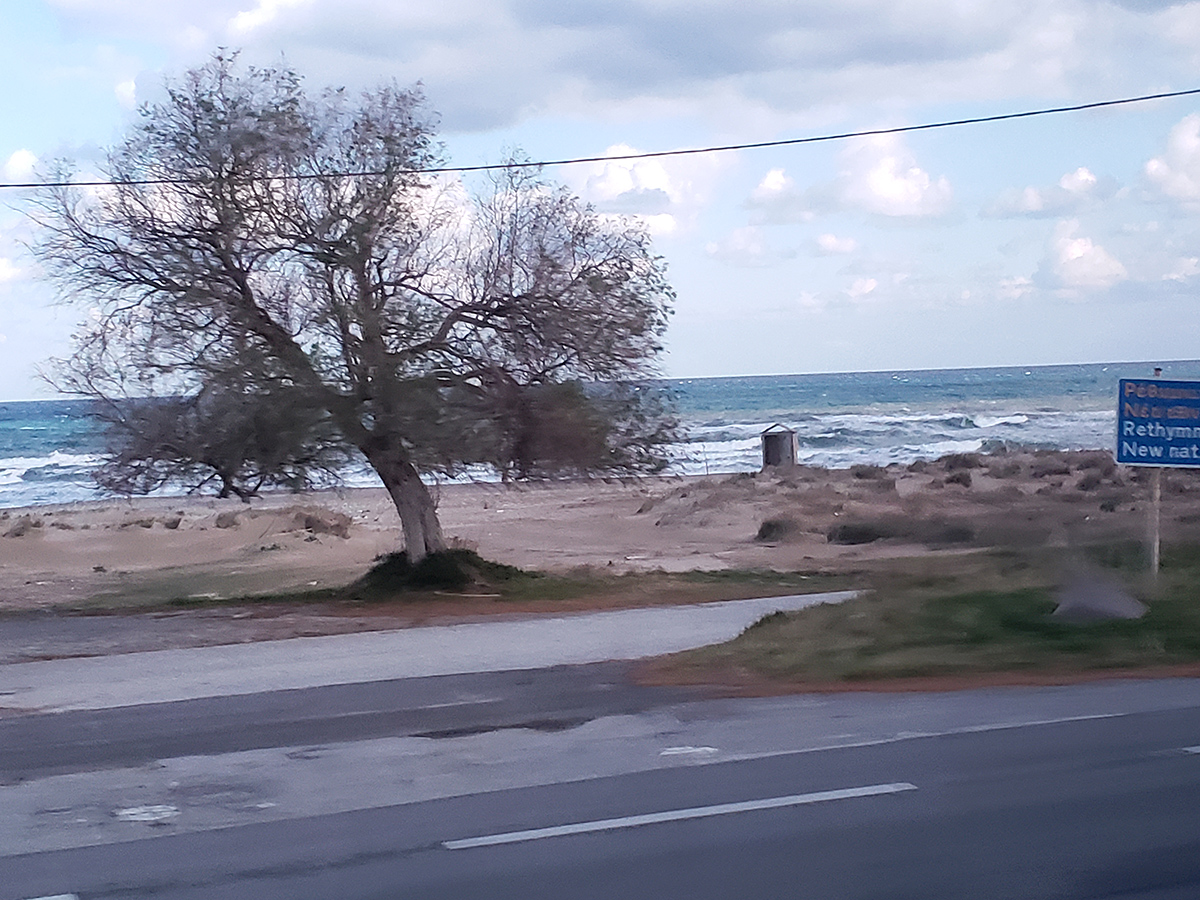
Along the way we passed through numerous small beach resort towns, mostly closed for the season or deep into construction in preparation for the coming high season.
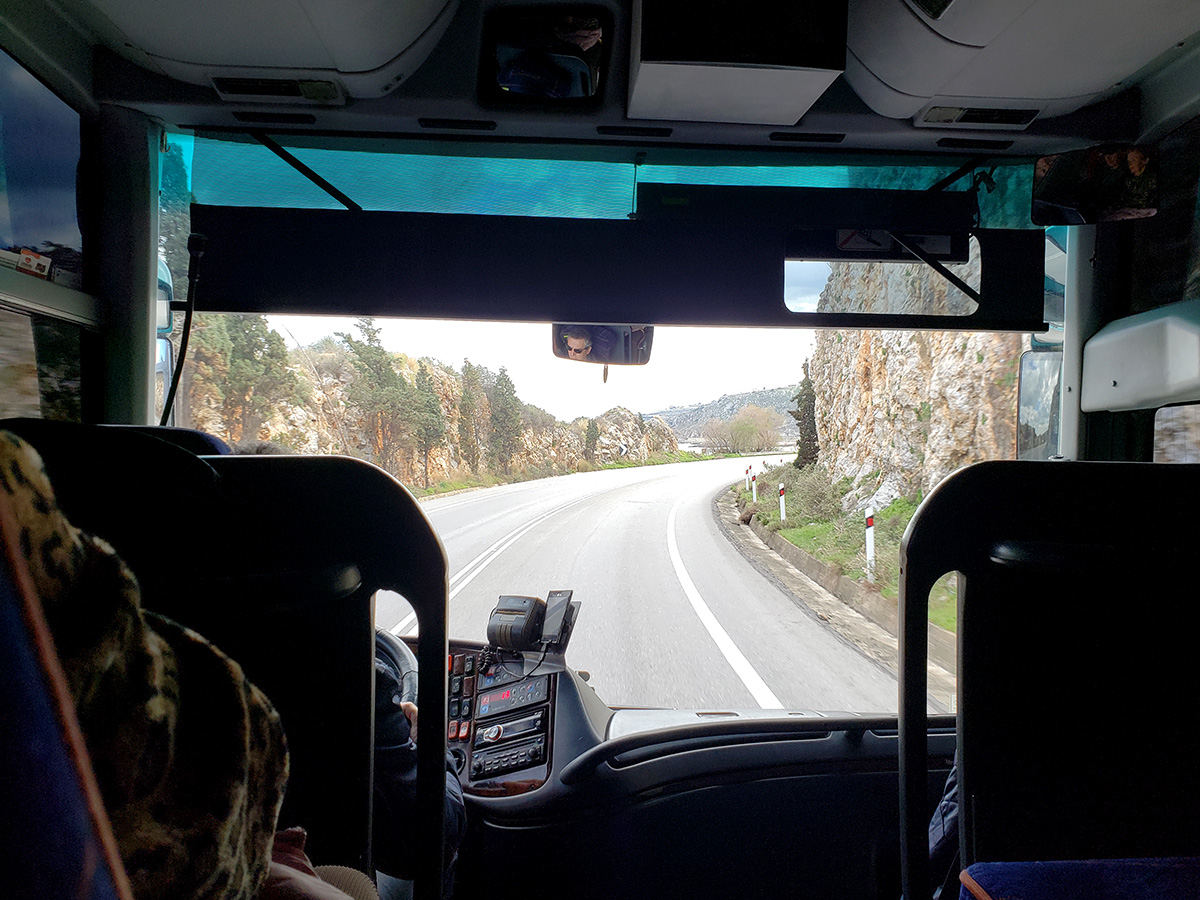
On arrival in Rethymno we checked into the Polyxenia Hotel, located centrally in the old town next to the large Mikrasiaton Square and the Neratze Mosque.
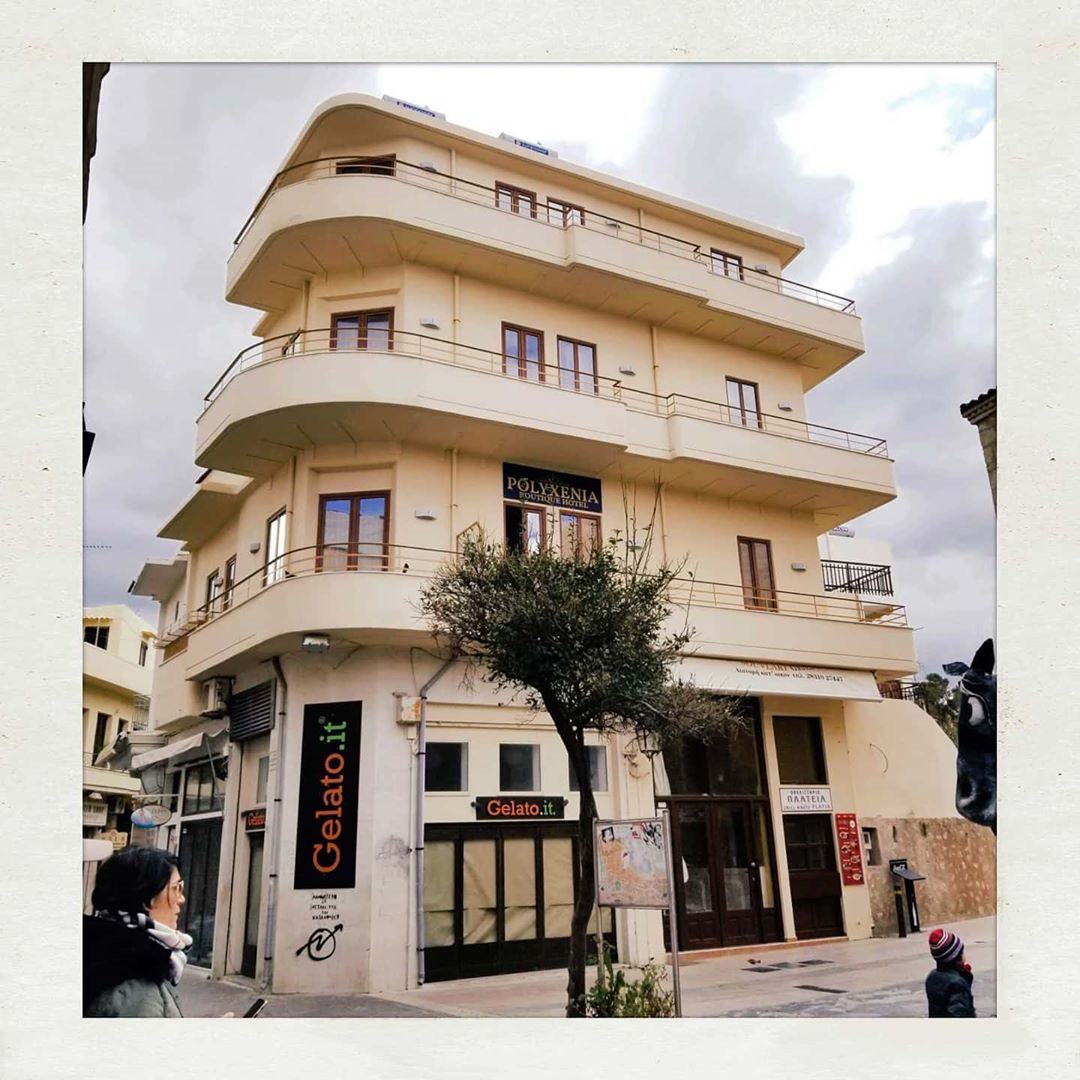
Here we received what was probably our warmest welcome in Greece by Giannis, the hotel owner. He and his family had repurchased the building he’d grown up in and extensively renovated it into a boutique hotel several years ago. Our room filled the top floor, which had been Giannis’s childhood bedroom.
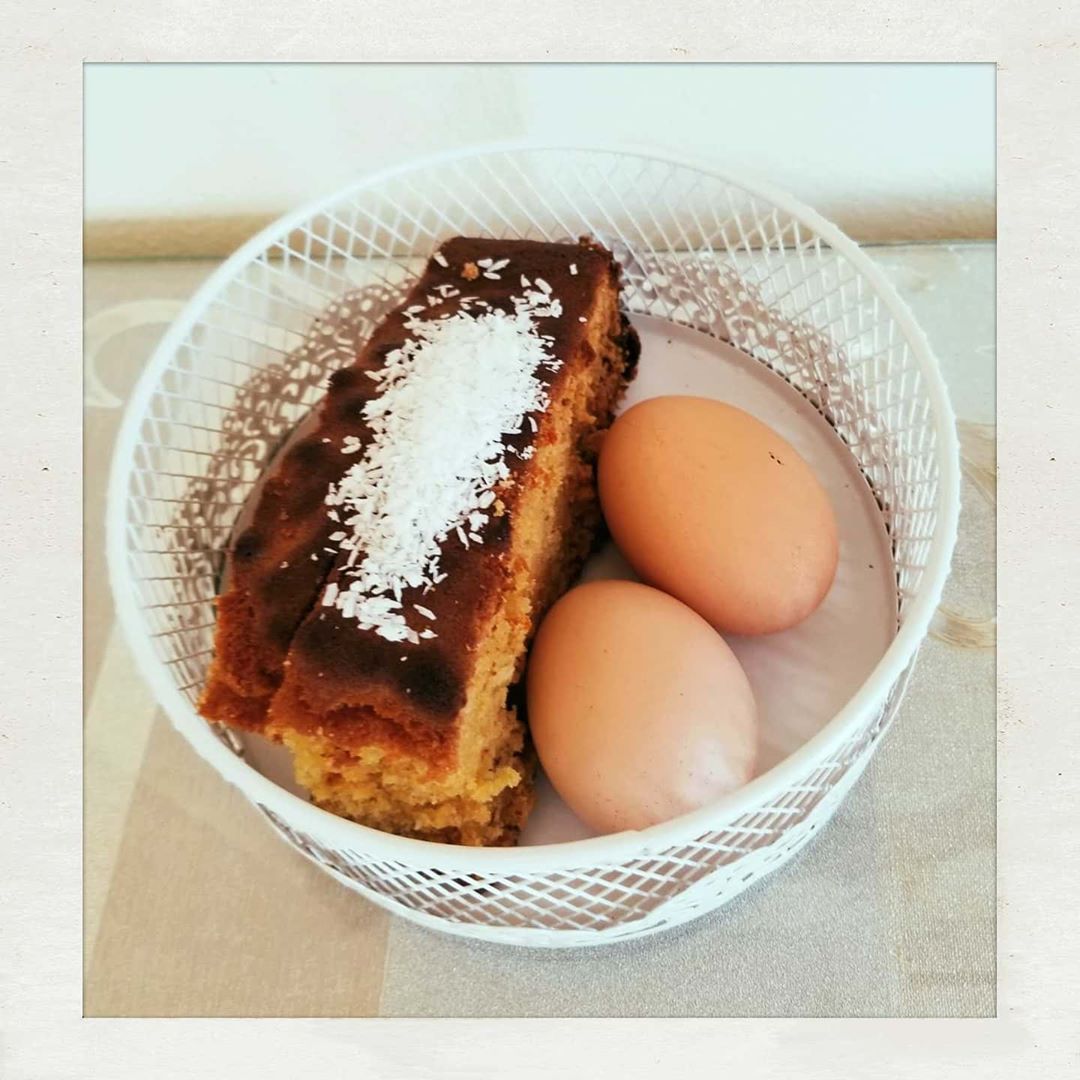
Giannis’s parents have since retired to a farm outside Rethymno. In the room were hard-boiled eggs fresh from their farm, wine and raki made by his father, and a delicous orange cake made by his mother.
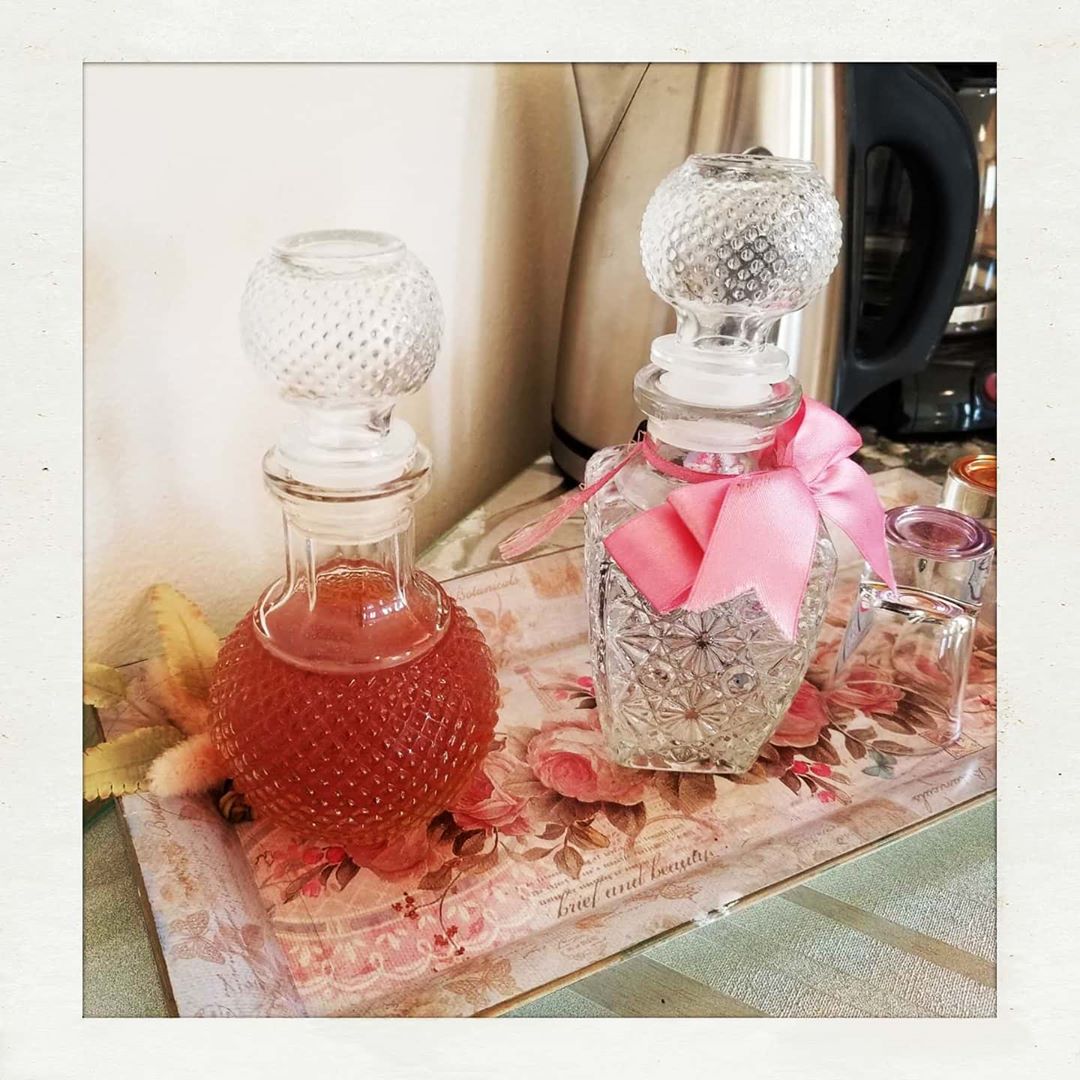
Don’t let the pretty bottles and pink ribbon fool you — this stuff is potent (but delicious).
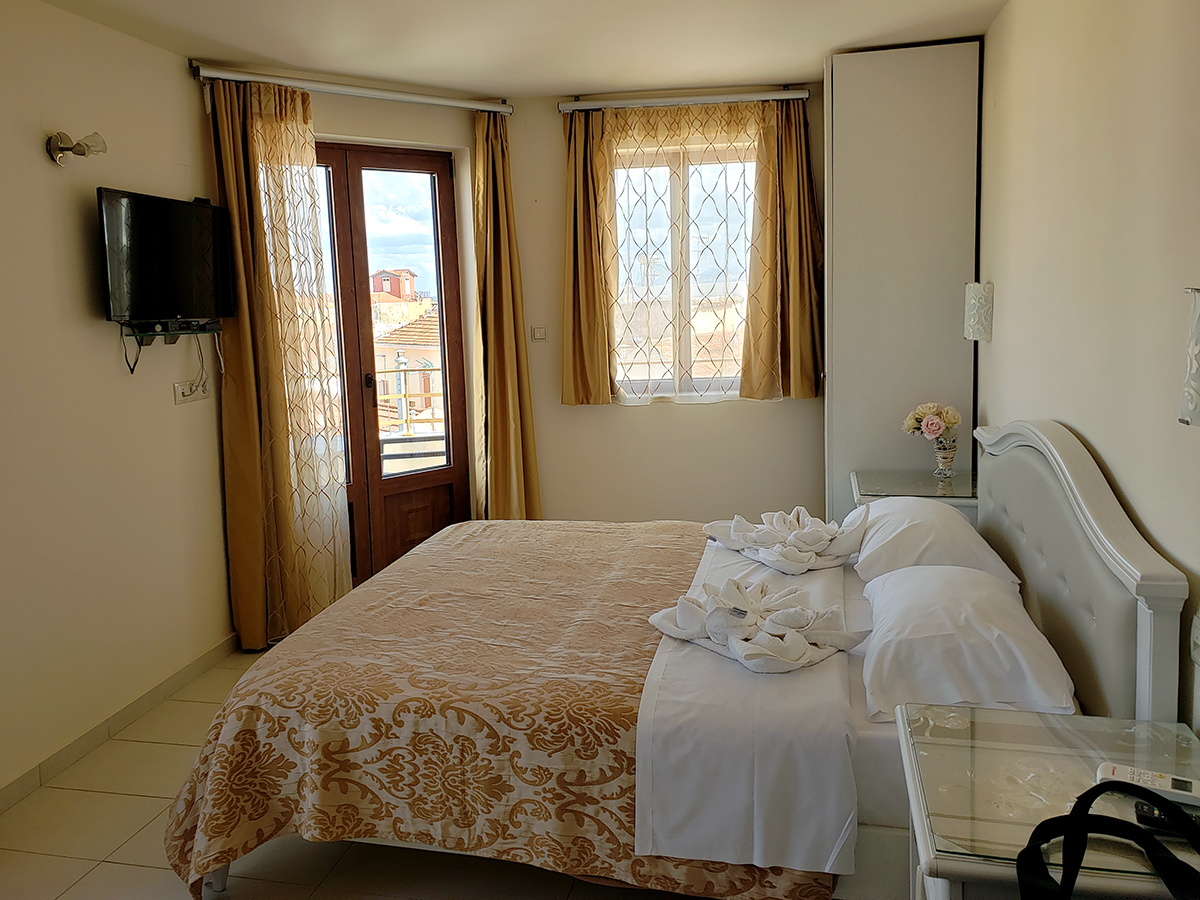
The room was very cozy and decorated in a classic style with modern touches. It also had a wrap-around balcony with fantastic views of the city and the Fortezza castle in the distance.
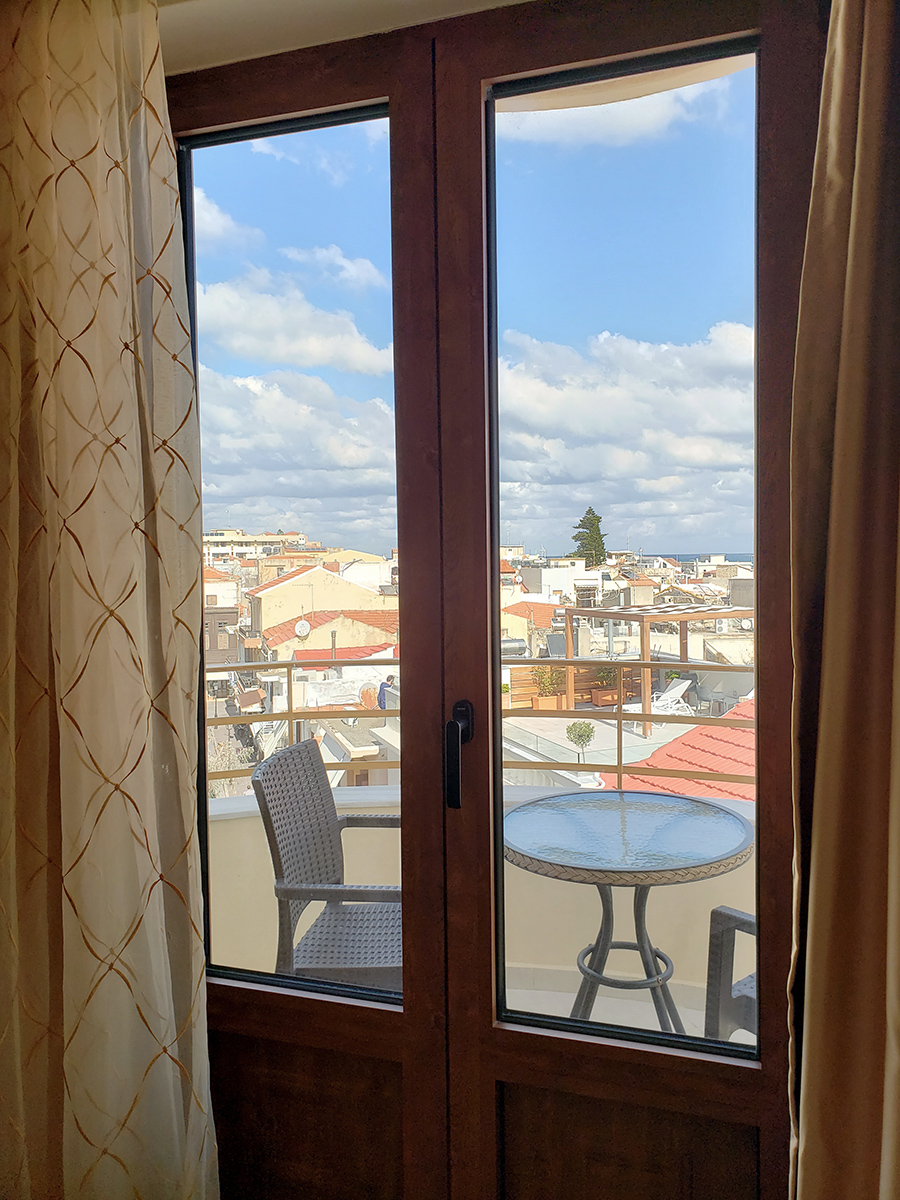
Because the hotel is one of the only buildings over three stories tall in Rethymno (and city rules ban other historic buildings from adding more floors) the views were great in every direction. We took a lot of photos from there at different times of day.
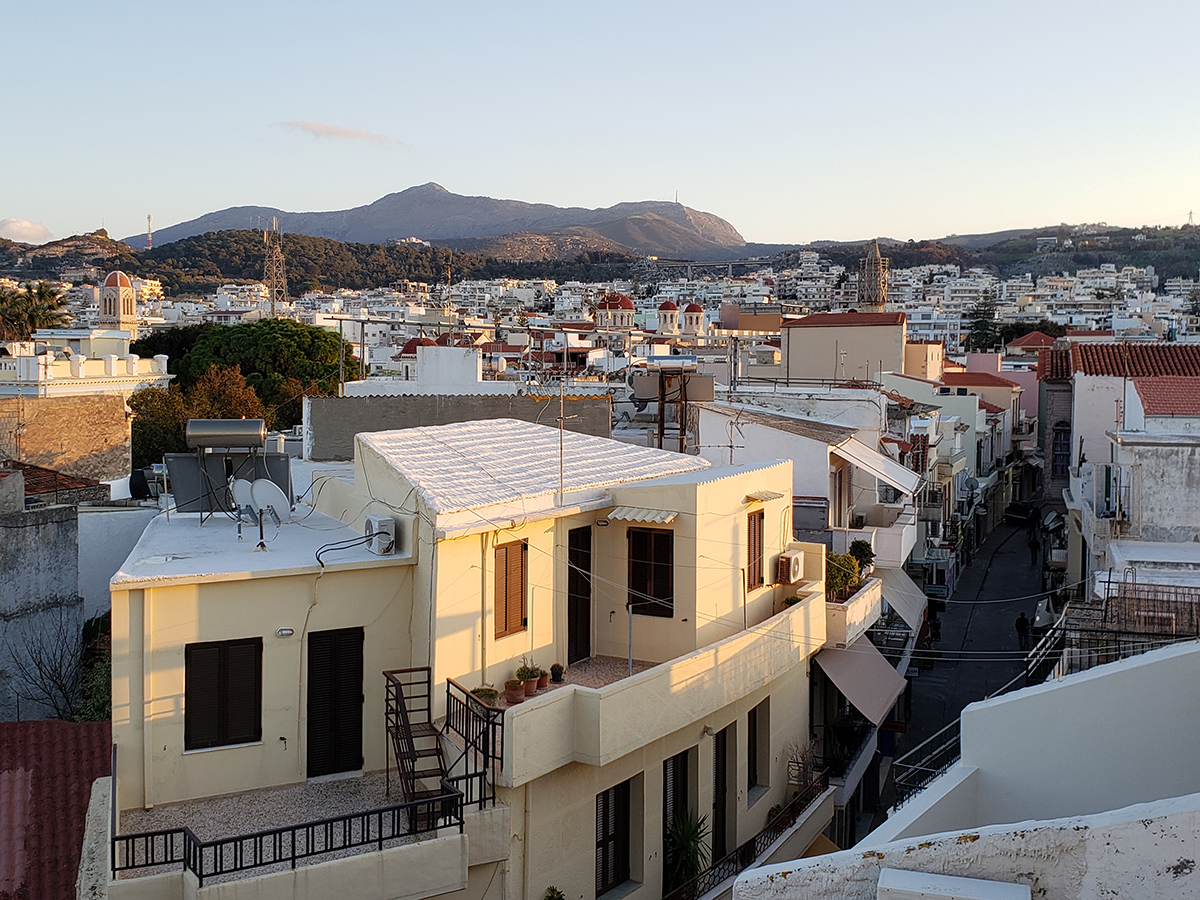
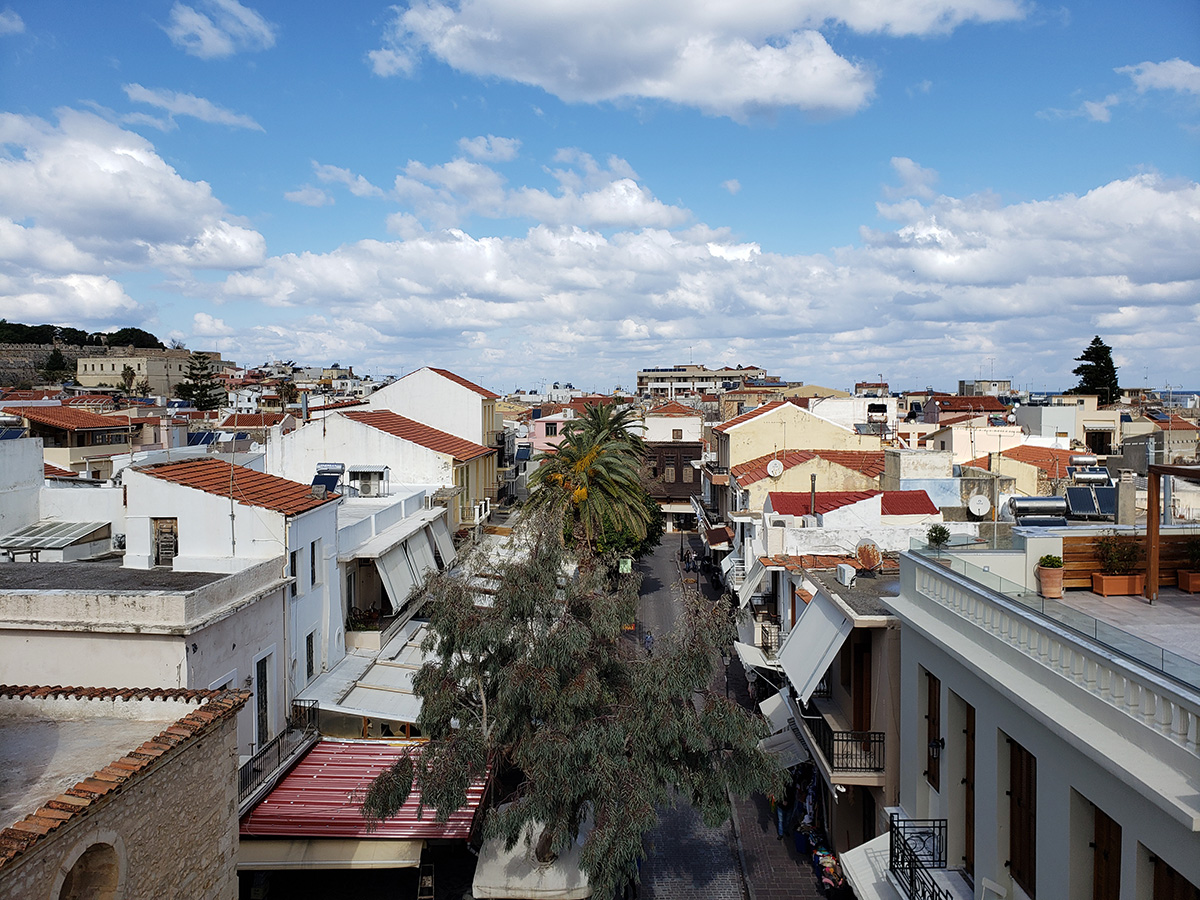
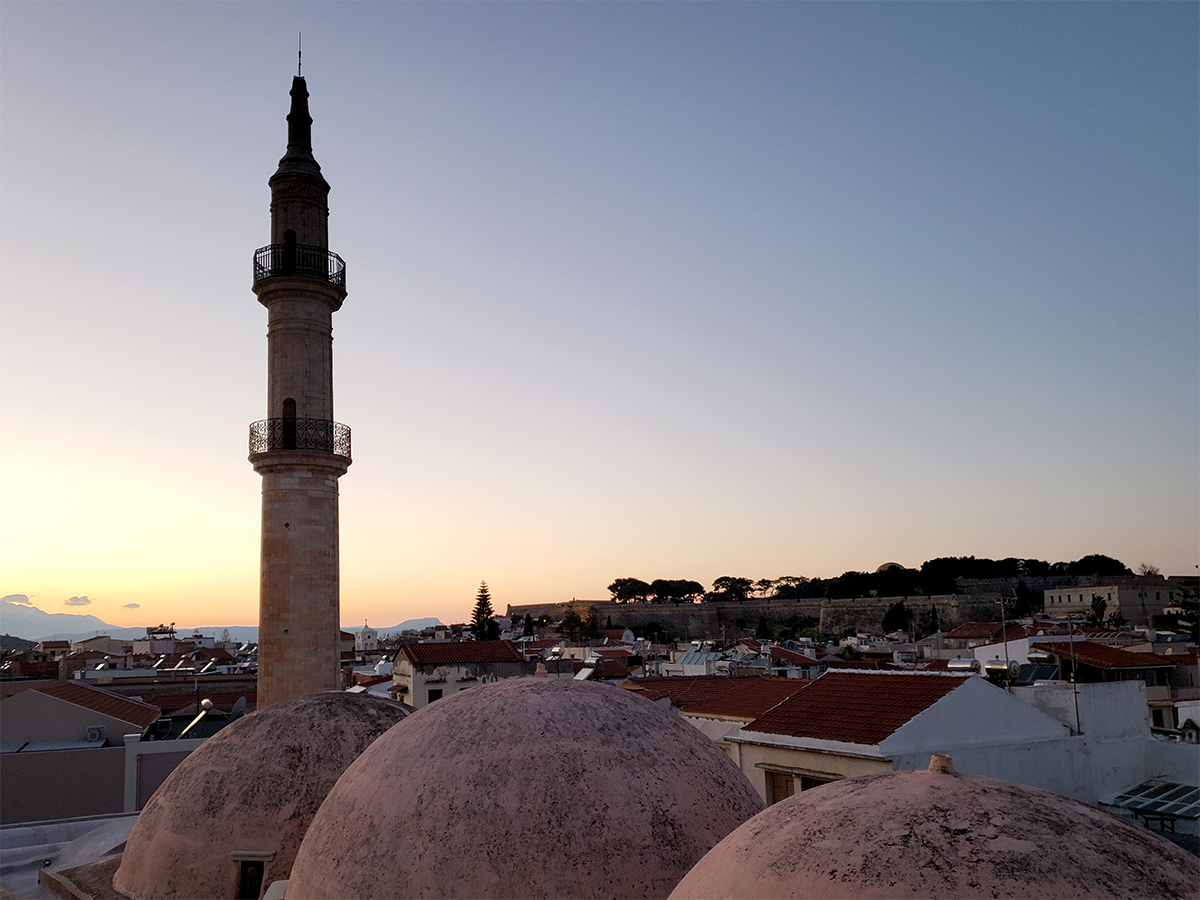
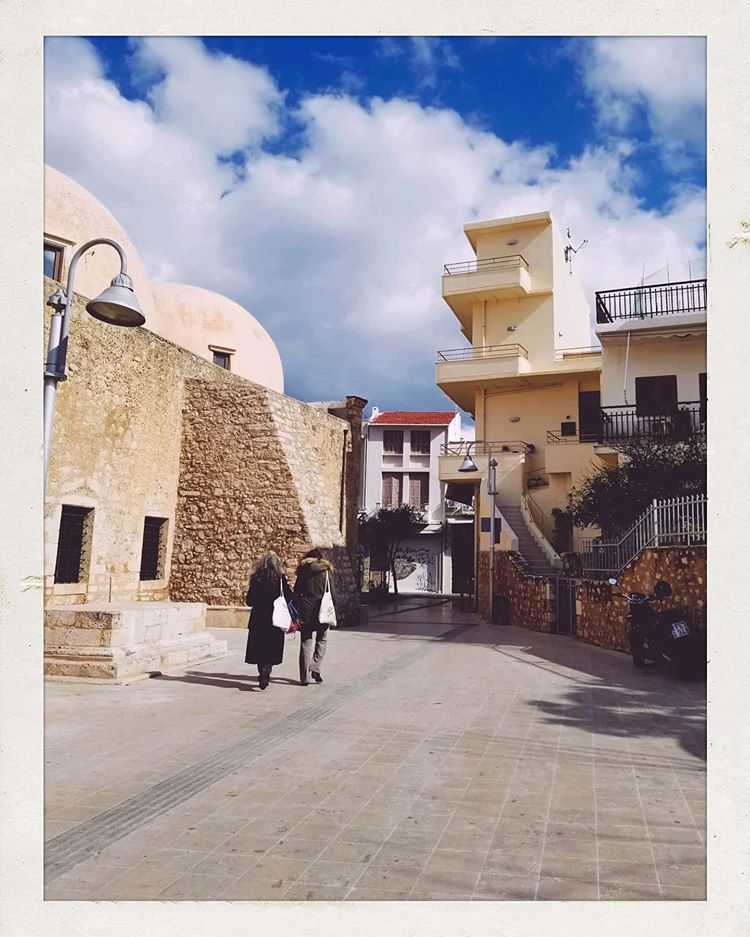
The Neratze Mosque next to the hotel was adapted from a former church in the 1600s, when the city was ruled by the Ottomans. Today it is a music school and performance space.
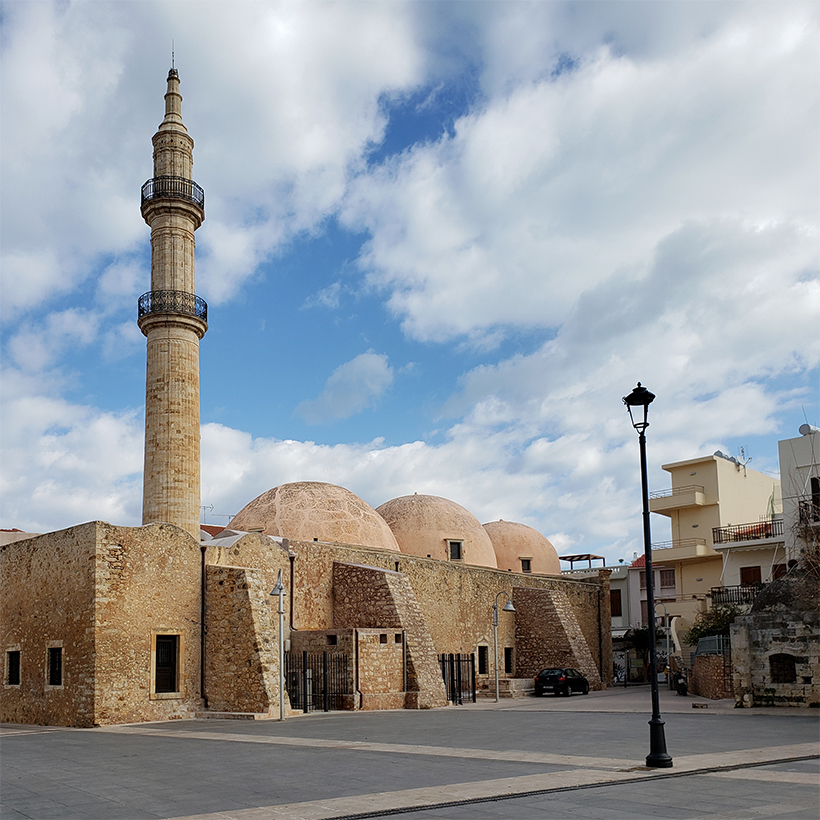
The adjoining Mikrasiaton Square is named to honour those from “Micro Asia” (Turkey) who arrived in Rethymno during the Great Population Exchange of 1923. I was surprised to have never heard of this event: over 2 million people from Greece and Turkey were uprooted and forced to change countries, with Muslims being sent to Turkey and Christians to Greece.
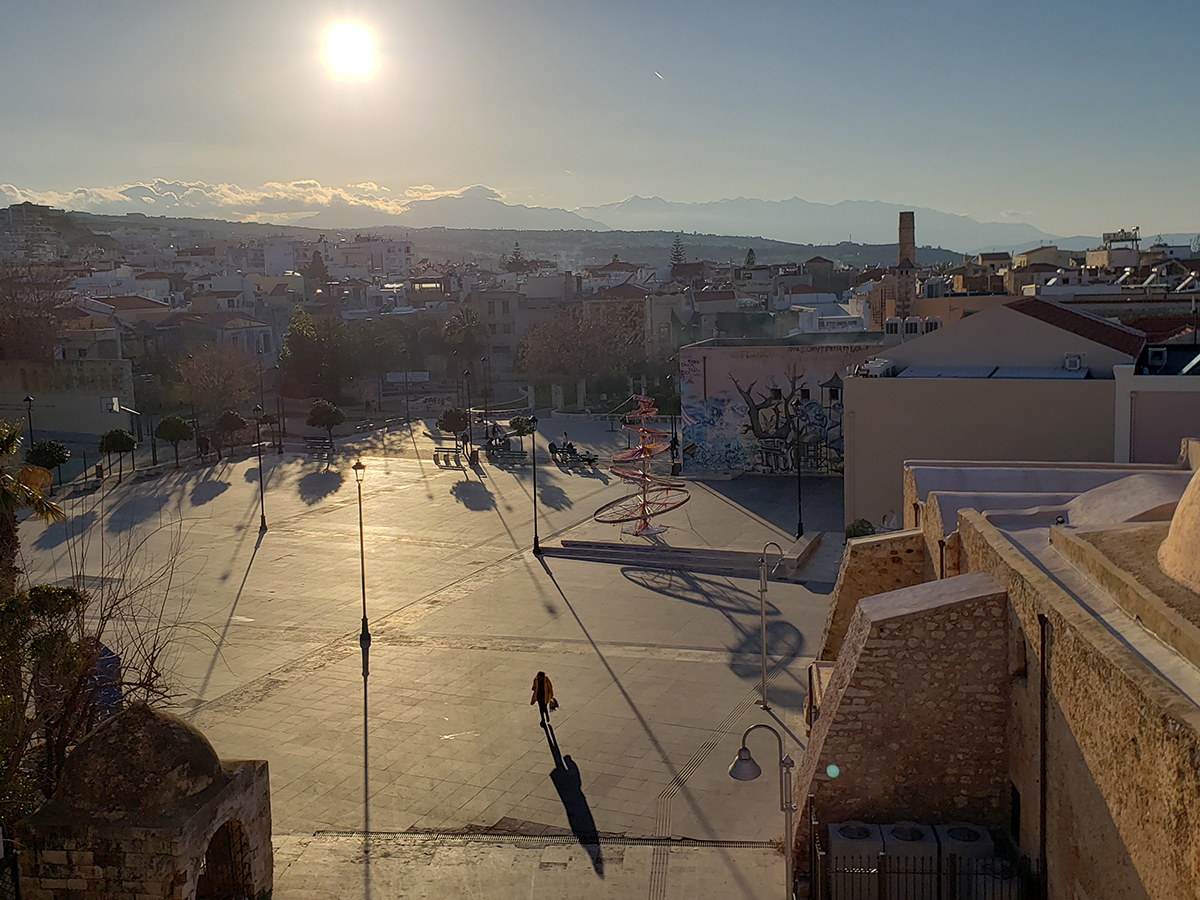
The streets around the hotel were filled with tavernas and small independent shops, some aimed at tourists and some aimed at locals. With a population of around 40,000 the pace felt different than in Chania, and people were a bit more laid back and chatty.
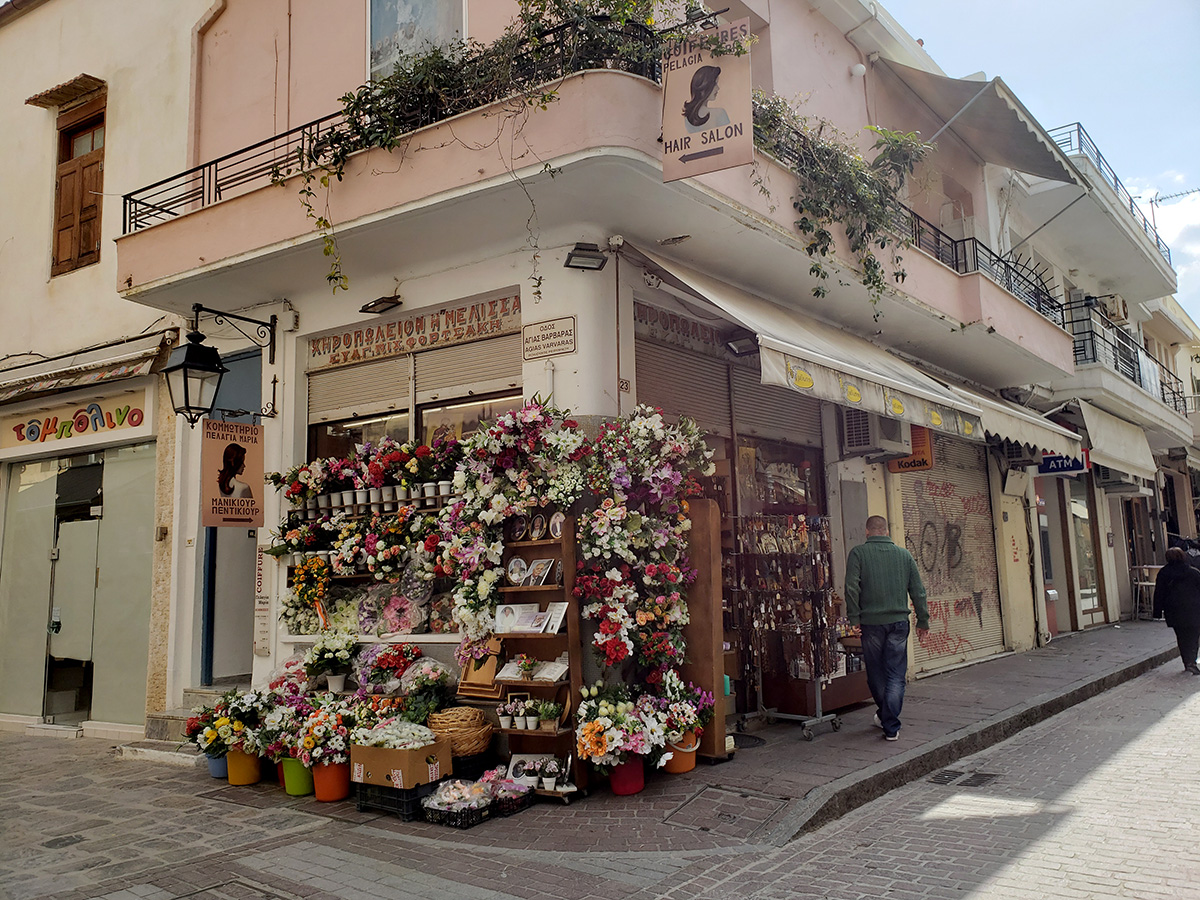
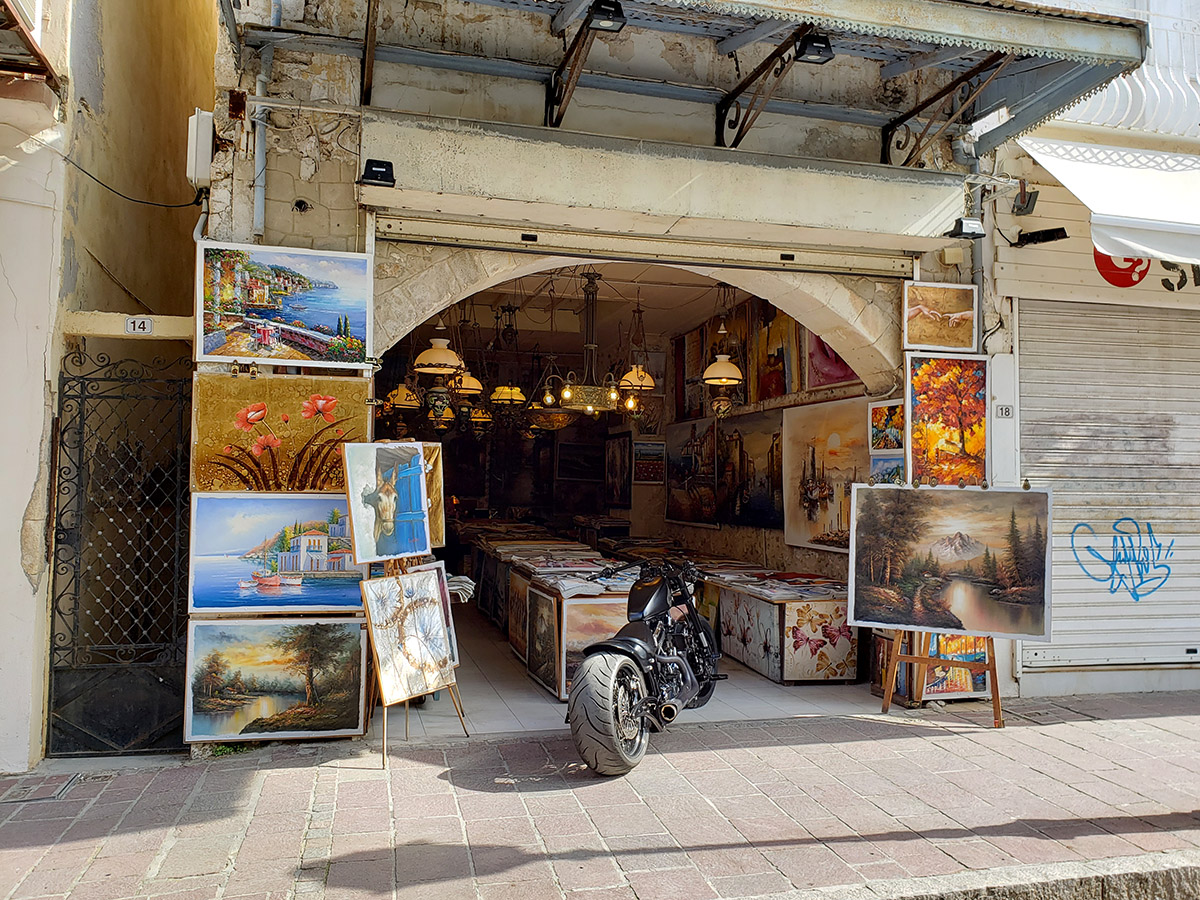
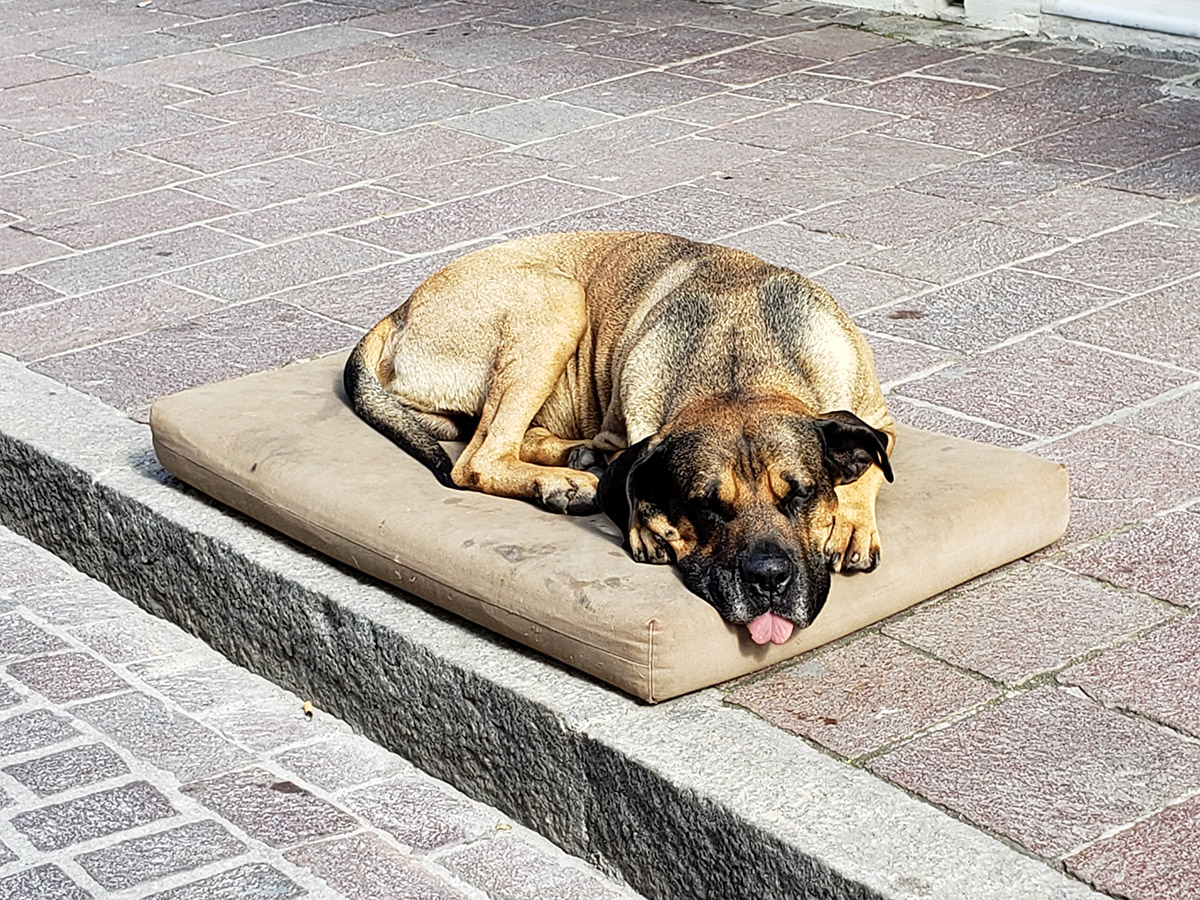
We found the ornate Rimondo Fountain, built by the Venetians in 1626.
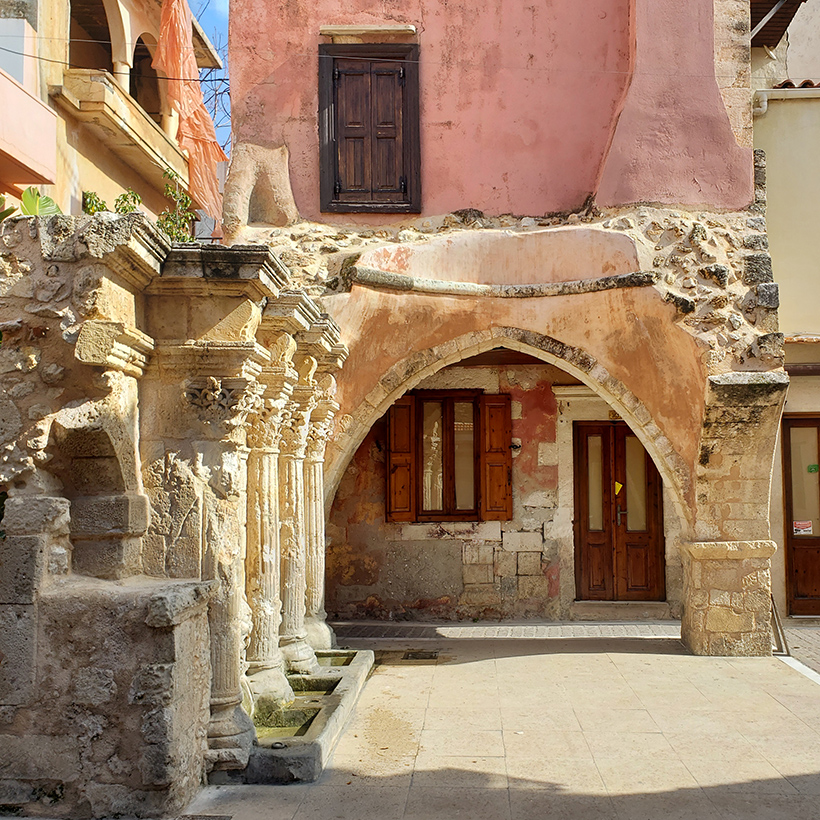
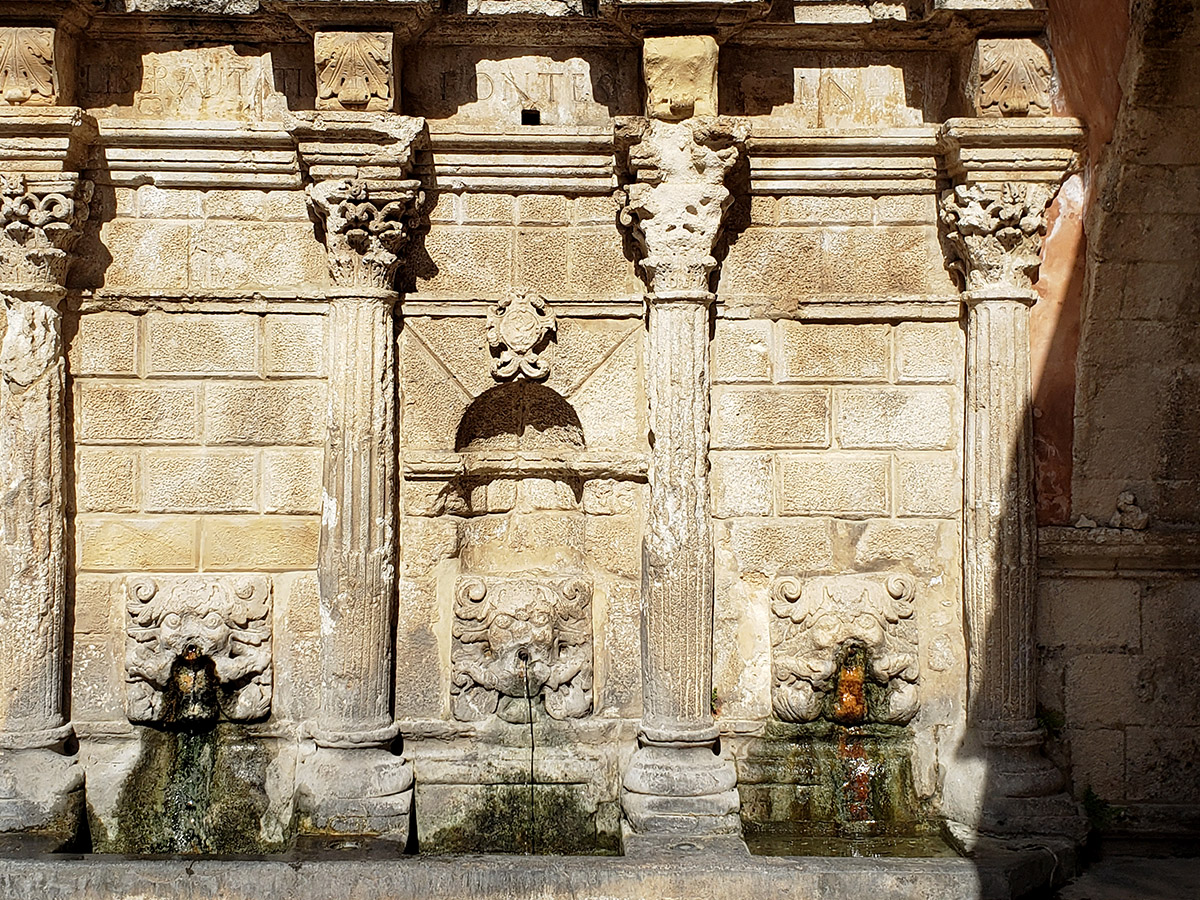
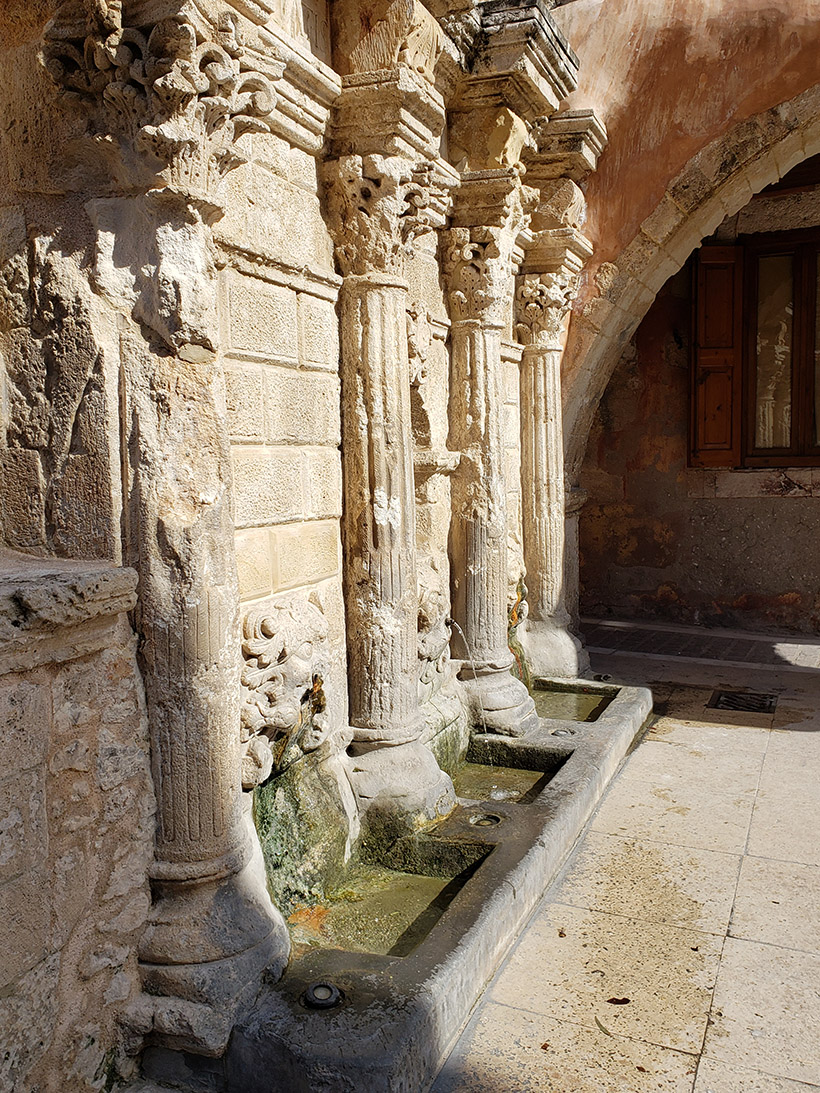
Also nearby was the Archaeological Museum of Rethymno, displaying a small but nicely curated selection of artifacts.
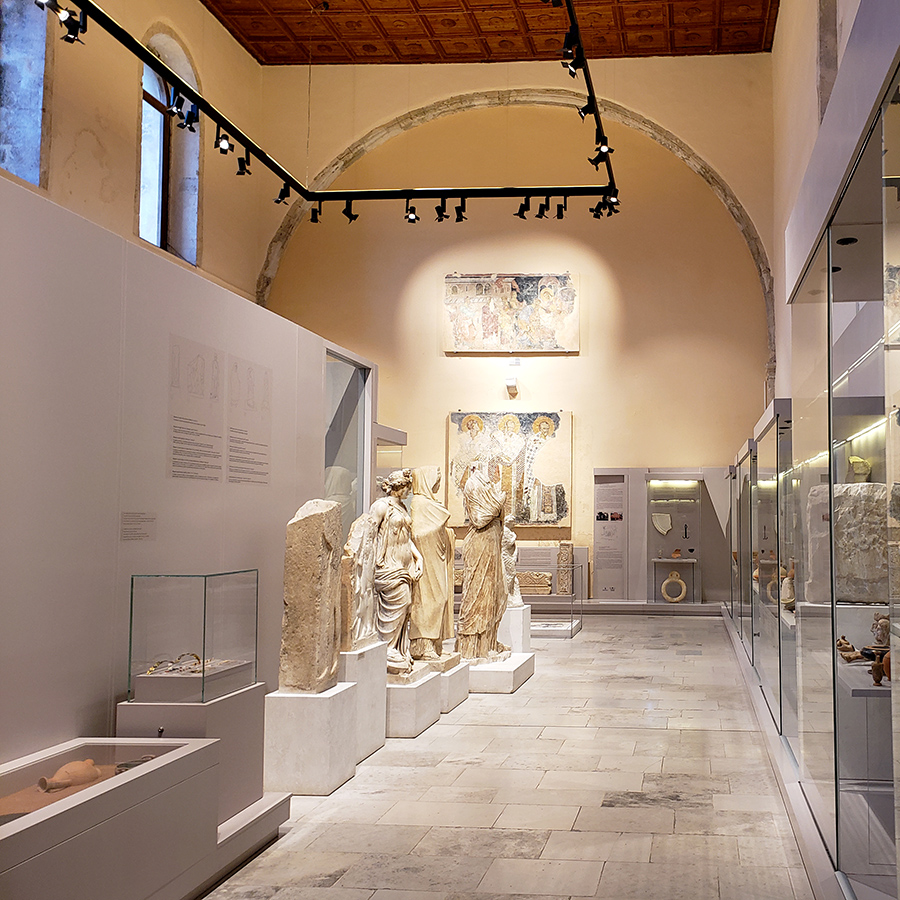
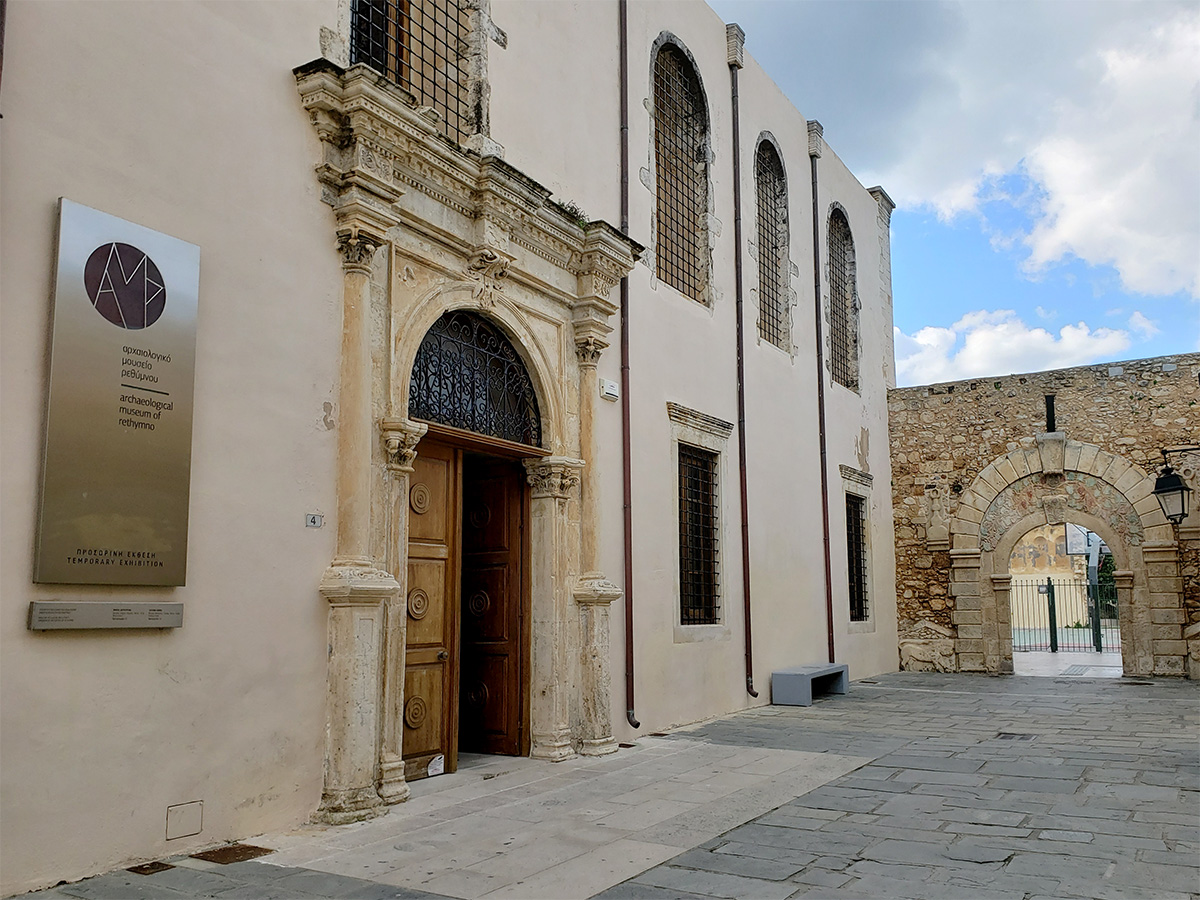
Just like Chania, Rethymno has a Venetian Harbour featuring an attractive lighthouse at the end of a breakwater. But it was all on a much smaller scale and we were able to leisurely wander around the harbour in about half an hour.
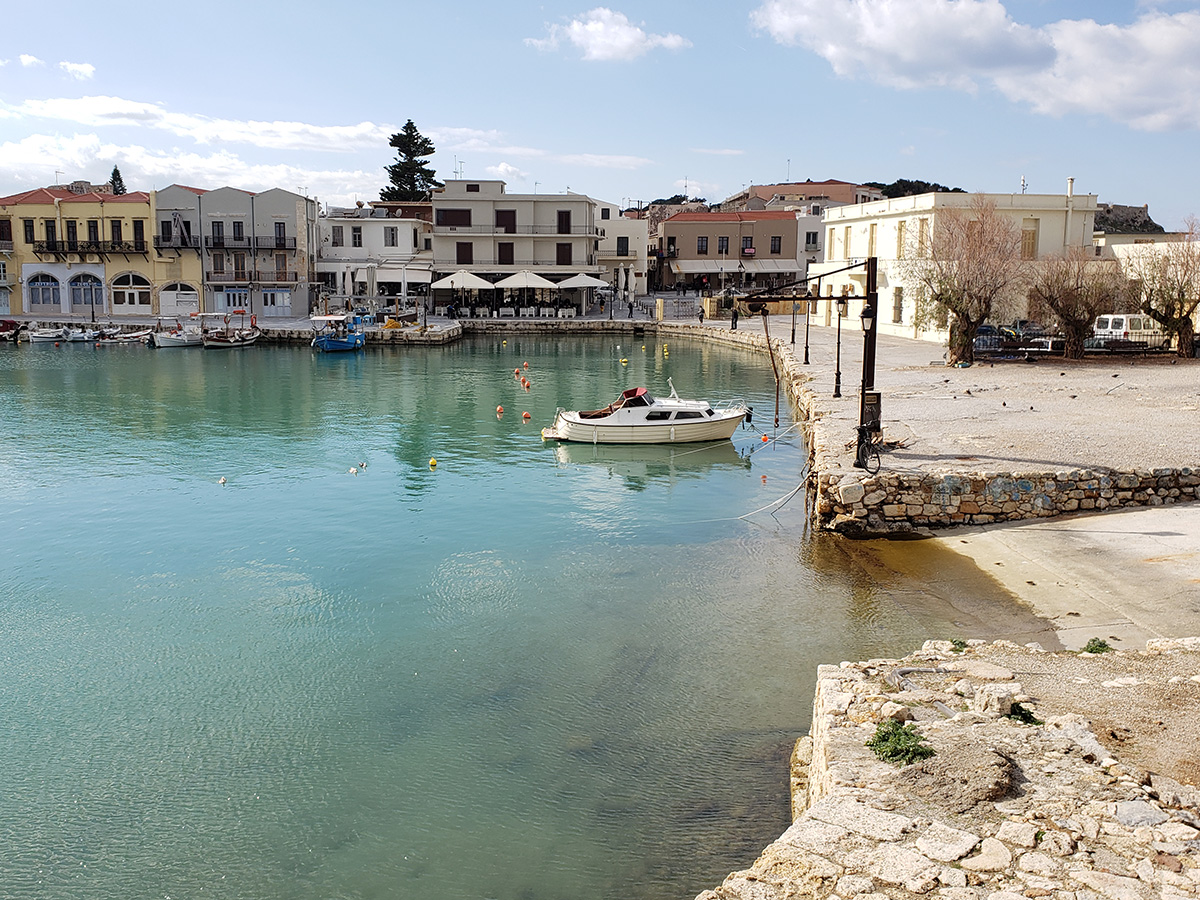
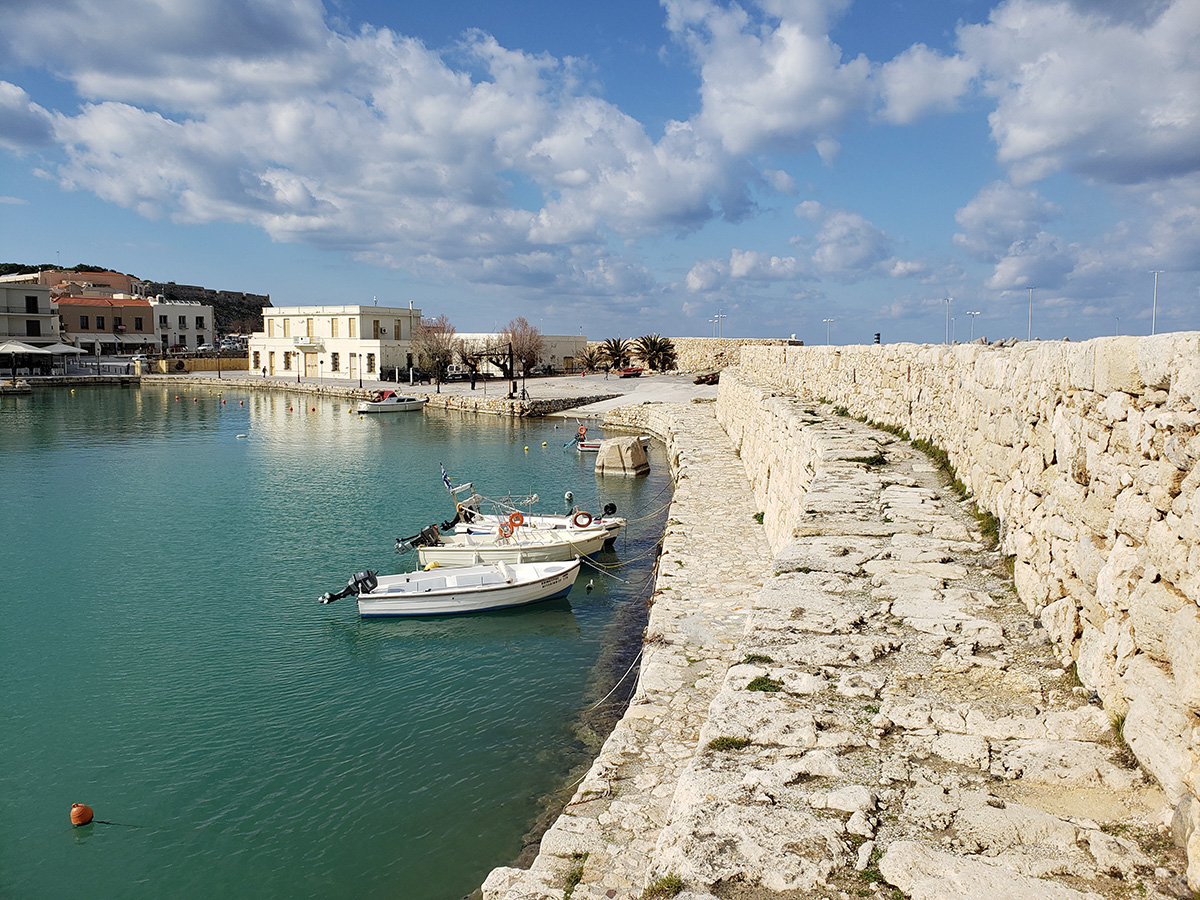
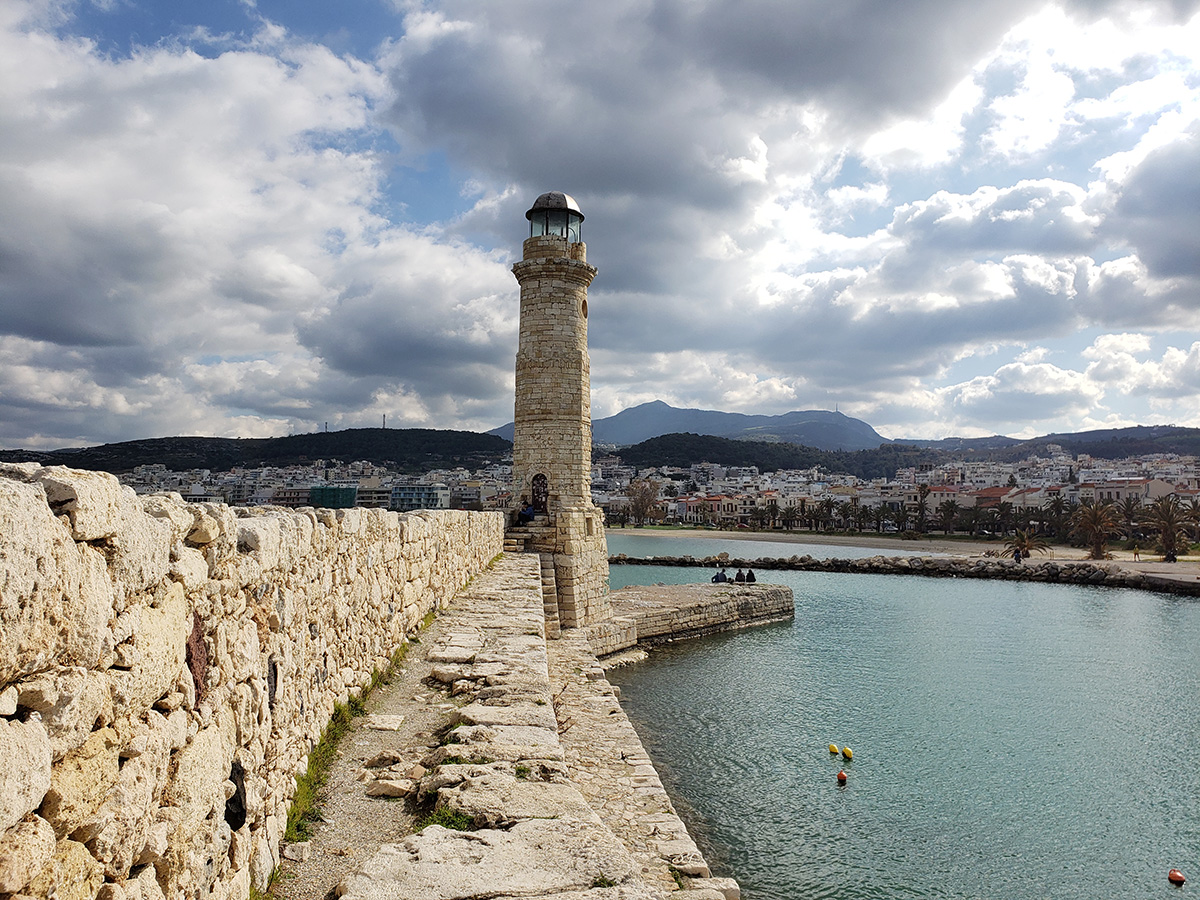
A little further along the shoreline we found the beginning of Rethymno Beach, very popular in the summer due to its handy position on the edge of the old town and tourist city center. By winter the beach was obviously very quiet, but it was still an attractive place to explore.
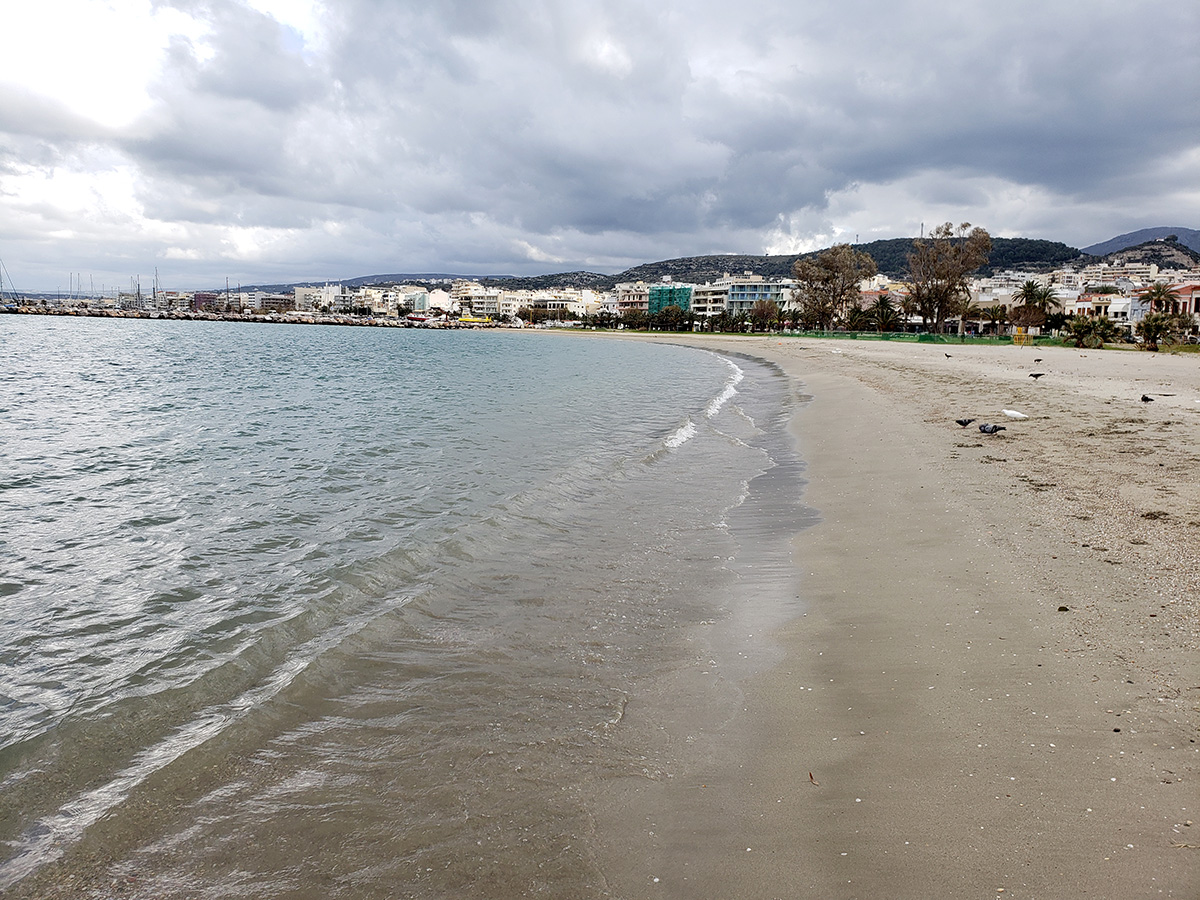
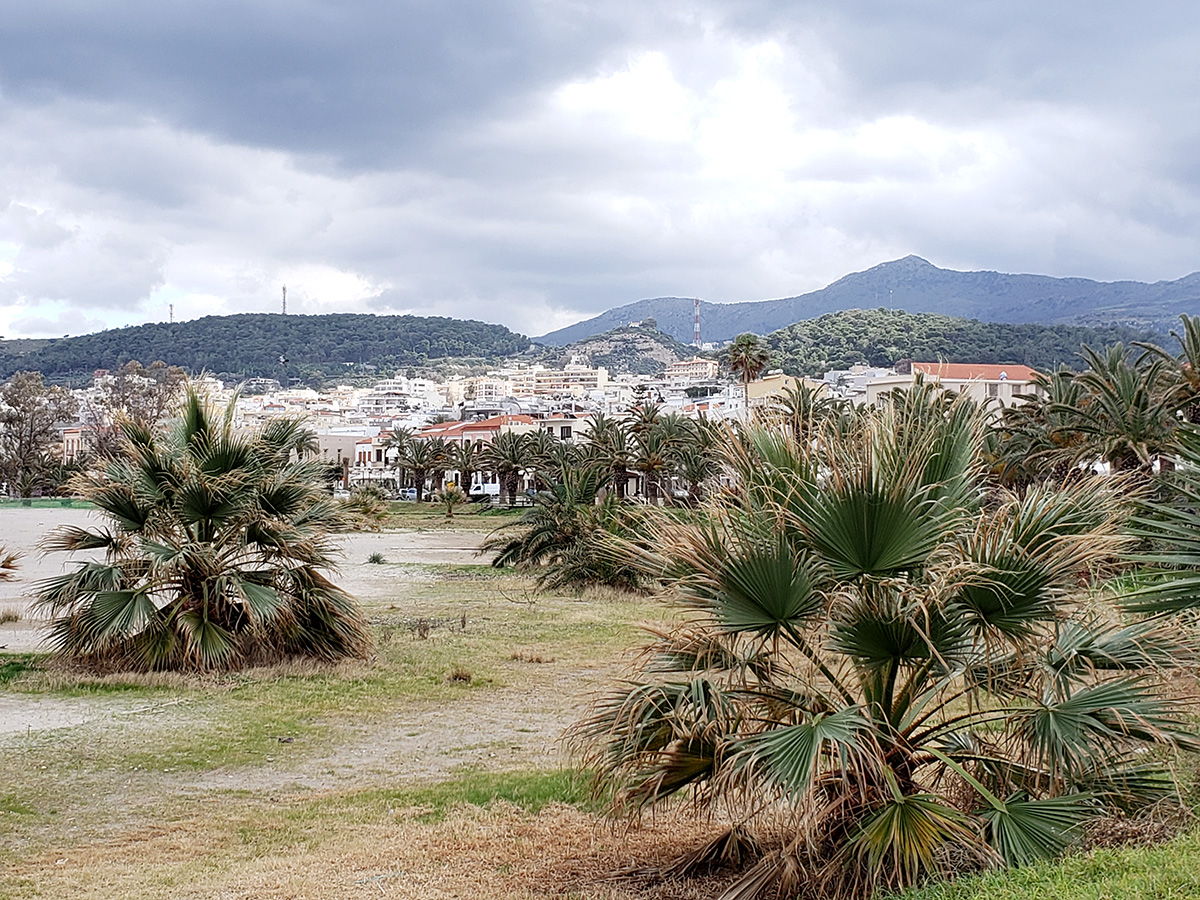
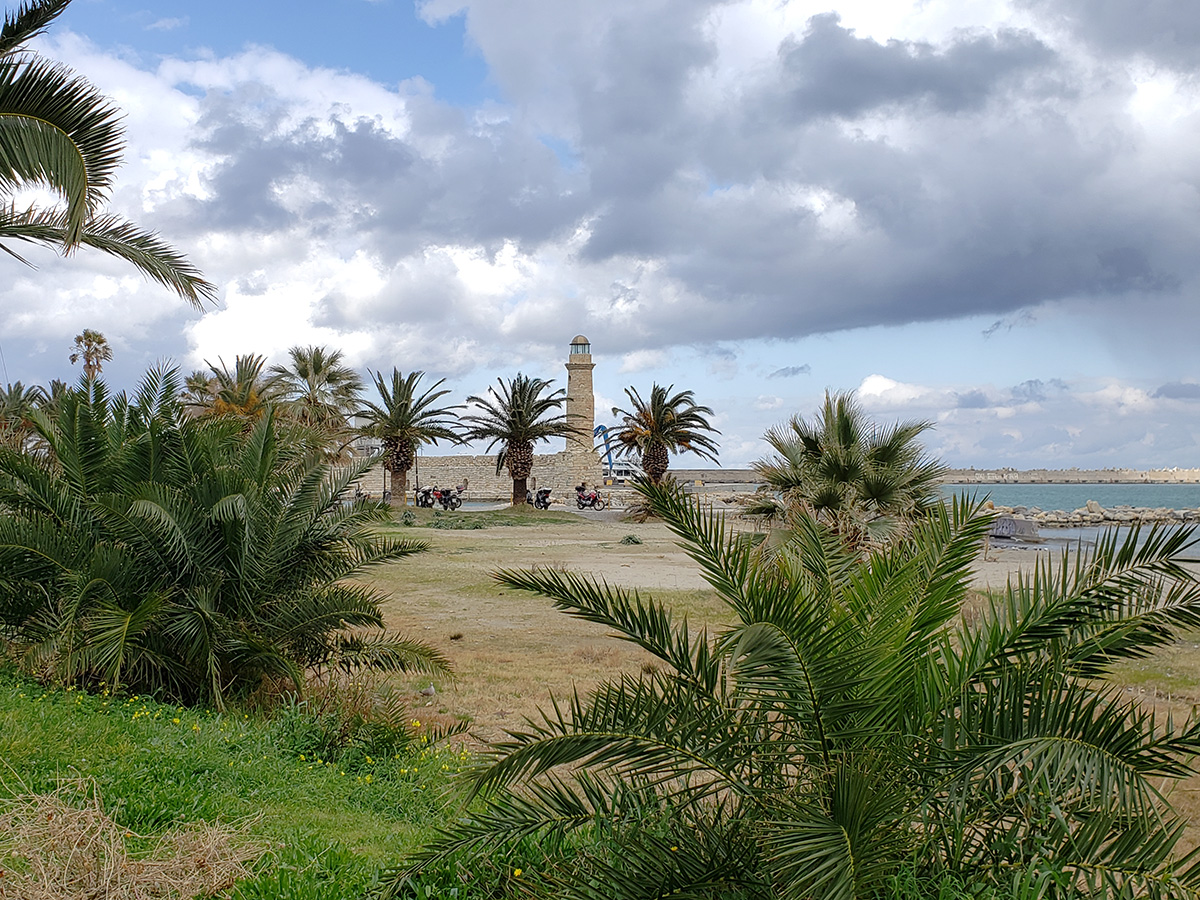
The restaurants along the boardwalk behind the beach were doing booming business on a Sunday.
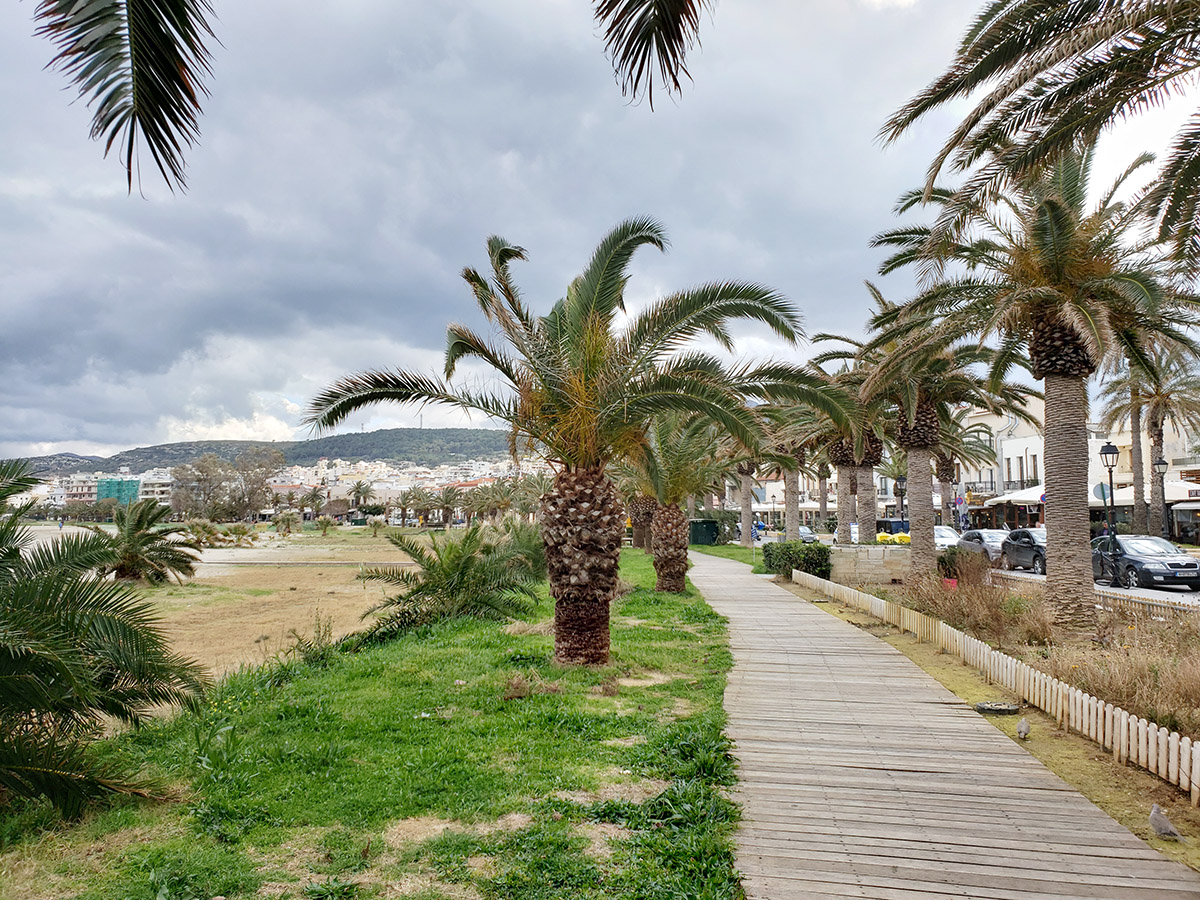
Across from the beach is the ferry port. We saw a SeaSpeed ferry, a company that provides services in a loop that links Rethymno to Piraeus (the main Athens port) and the islands of Milos and Santorini.
